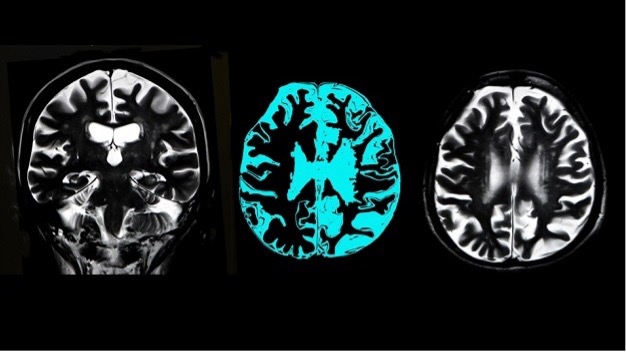FDA Indicates Potential Full Approval for Eisai & Biogen’s Leqembi Ahead of Adcomm
June 10, 2023
Source: drugdu
 258
258
By Rosemary Scott

Pictured: Three side-by-side scans of a human brain/iStock, semnic
The FDA released briefing documents Wednesday that signal it is likely to grant Eisai and Biogen’s Leqembi (lecanemab) full approval to treat Alzheimer’s disease on its decision date in July. The documents come just two days before an advisory committee is scheduled to vote on whether to recommend the drug’s approval.
The FDA has asked the six members of the advisory committee to answer the following question: Do the results of a pivotal trial dubbed Study 301 (CLARITY AD) verify the clinical benefit of lecanemab for the treatment of AD?
But it appears the agency may have already decided for itself.
Both the briefing documents and the committee’s decision will be based on the Study 301results. In the documents, the FDA stated that the data from the trial showed “consistently favorable results for the primary and secondary endpoints,” which included a reduction in cognitive decline.
The agency added that the main safety signals—amyloid-related imaging abnormalities (ARIA), cerebral hemorrhage and infusion-related reactions and hypersensitivity—are not greater than the benefit and “do not appear to preclude traditional approval of lecanemab.”
A full approval would replace the conditional approval the agency granted the drug in January, when it became the second drug the FDA had approved to treat Alzheimer’s in two years. At the time, there was an open question as to whether Medicare would cover Leqembi upon full approval, as the Centers for Medicare & Medicaid Services (CMS) previously stated it would only cover the cost for patients enrolled in clinical trials of the drug.
This question was answered last Thursday, when CMS Administrator Chiquita Brooks-LaSure announced Medicare would pay for new Alzheimer’s drugs after the FDA granted them full approval. The coverage comes with one condition: physicians will be required to collect data about how well the drugs perform in their patients.
This marks the first time the CMS has required physicians to record this kind of information. When doctors prescribe Leqembi, they will register the patient in a government registry to keep track of the patient’s symptoms and overall health.
The same day the CMS announced its decision, the Alzheimer's Association published a press release criticizing the requirement for physicians.
“We continue to believe that registry as a condition of coverage is an unnecessary barrier,” the organization stated. “Registries are important tools to gather much-needed real-world evidence to transform and improve patient care. But, registries should not be a requirement for coverage of an FDA-approved treatment.
Reference:https://www.biospace.com/
By editorRead more on
- The first subject has been dosed in the Phase I clinical trial of Yuandong Bio’s EP-0210 monoclonal antibody injection. February 10, 2026
- Clinical trial of recombinant herpes zoster ZFA01 adjuvant vaccine (CHO cells) approved February 10, 2026
- Heyu Pharmaceuticals’ FGFR4 inhibitor ipagoglottinib has received Fast Track designation from the FDA for the treatment of advanced HCC patients with FGF19 overexpression who have been treated with ICIs and mTKIs. February 10, 2026
- Sanofi’s “Rilzabrutinib” has been recognized as a Breakthrough Therapy in the United States and an Orphan Drug in Japan, and has applied for marketing approval in China. February 10, 2026
- Domestically developed blockbuster ADC approved for new indication February 10, 2026
your submission has already been received.
OK
Subscribe
Please enter a valid Email address!
Submit
The most relevant industry news & insight will be sent to you every two weeks.



